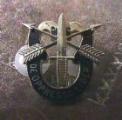Abdel Hafiz Ghoga, deputy chief of the National Transitional Council, said it would try to bring to justice anyone proven to have fired the shot to the head that killed Gaddafi.
"With regards to Gaddafi, we do not wait for anybody to tell us," he told the al-Arabiya satellite channel. "We had already launched an investigation. We have issued a code of ethics in handling of prisoners of war. I am sure that was an individual act and not an act of revolutionaries or the national army. Whoever is responsible for that [Gaddafi's killing] will be judged and given a fair trial."
Attempts to launch an investigation are unlikely to be welcomed in Misrata, where the rebels who captured Gaddafi in his home town of Sirte are based. Asked this week about the questions surrounding his death by people outside Libya, Misrata's military chief, Ibrahim Beit al-Mal, said: "Why are they even asking this question? He was caught and he was killed. Would he have given us the same? Of course."
...
The identity of the man who allegedly pulled his 9mm pistol from his waistband and shot the wounded dictator in the left temple around 20 minutes after his capture is widely known in Misrata, as is the unit he belonged to, the Katiba Ghoran.
"They won't come near us," said the rebel who pulled Gaddafi from a drain last Thursday. "They won't dare. Gaddafi was saying: 'What's this, what's this?' After nine months of blood, he was saying: 'What's this?'. What does he expect?"



 Reply With Quote
Reply With Quote






Bookmarks